Amazon Echo vs Google Home: which is the ideal smart speaker for you?
Smart speakers from Amazon and Google go head-to-head – should you go Echo or should you go Home?

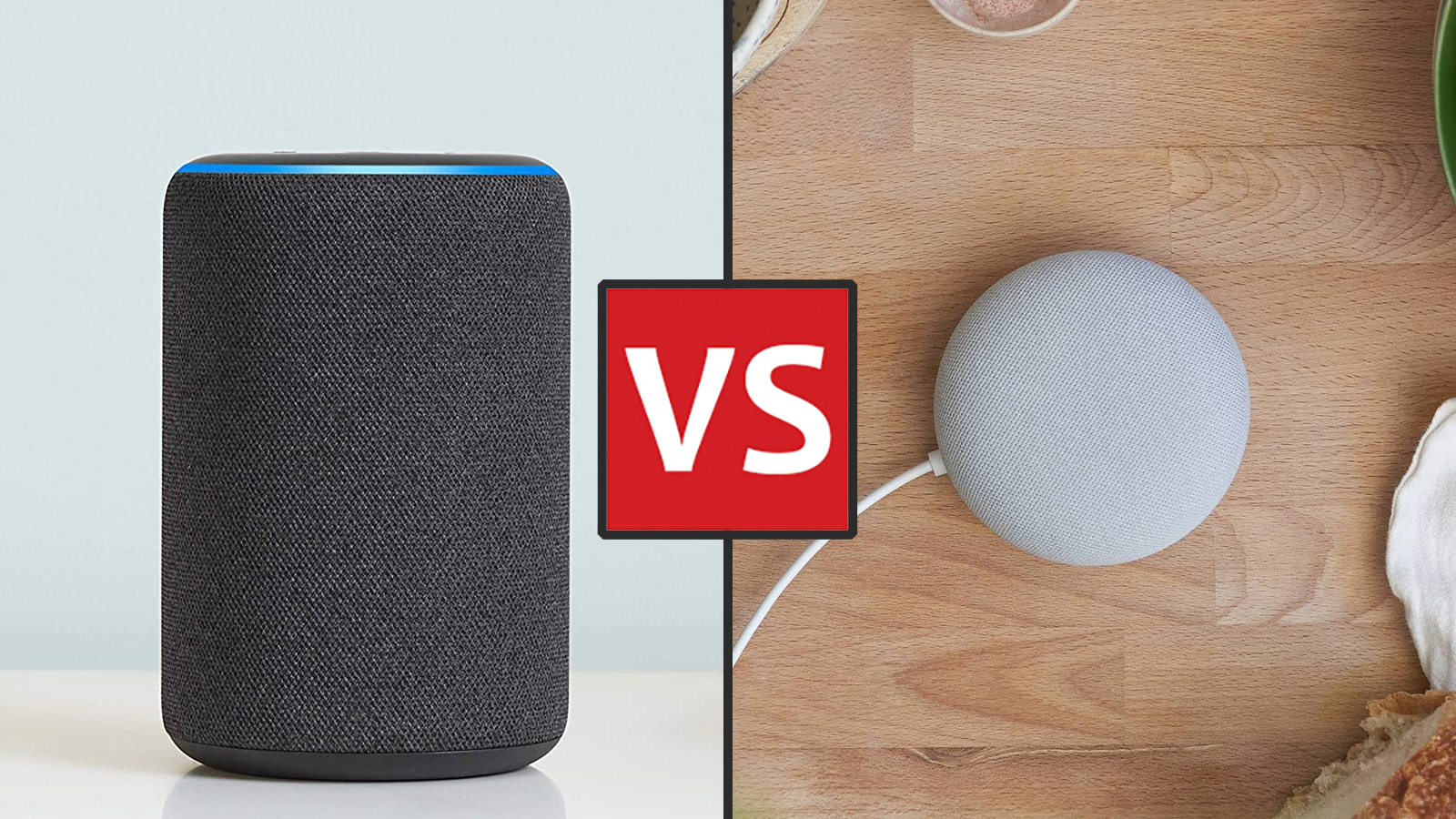
Get all the latest news, reviews, deals and buying guides on gorgeous tech, home and active products from the T3 experts
You are now subscribed
Your newsletter sign-up was successful
The Amazon Echo versus Google Home debate is one of the biggest in tech, with both sides releasing new smart speakers on a regular basis. You're not just choosing between devices either – it's a choice between smart assistants and between smart home ecosystems too.
Here we're going to put the Amazon Echo speakers and displays up against the Google Home and Google Nest speakers and displays in all the key categories. There's no better or more comprehensive guide out there for finding the best smart speakers for you.
- These are the best smart cameras on the market right now
- The best smart bulbs for a lighting upgrade
- Add voice control to any device with the best smart plugs
Amazon Echo vs Google Home: design
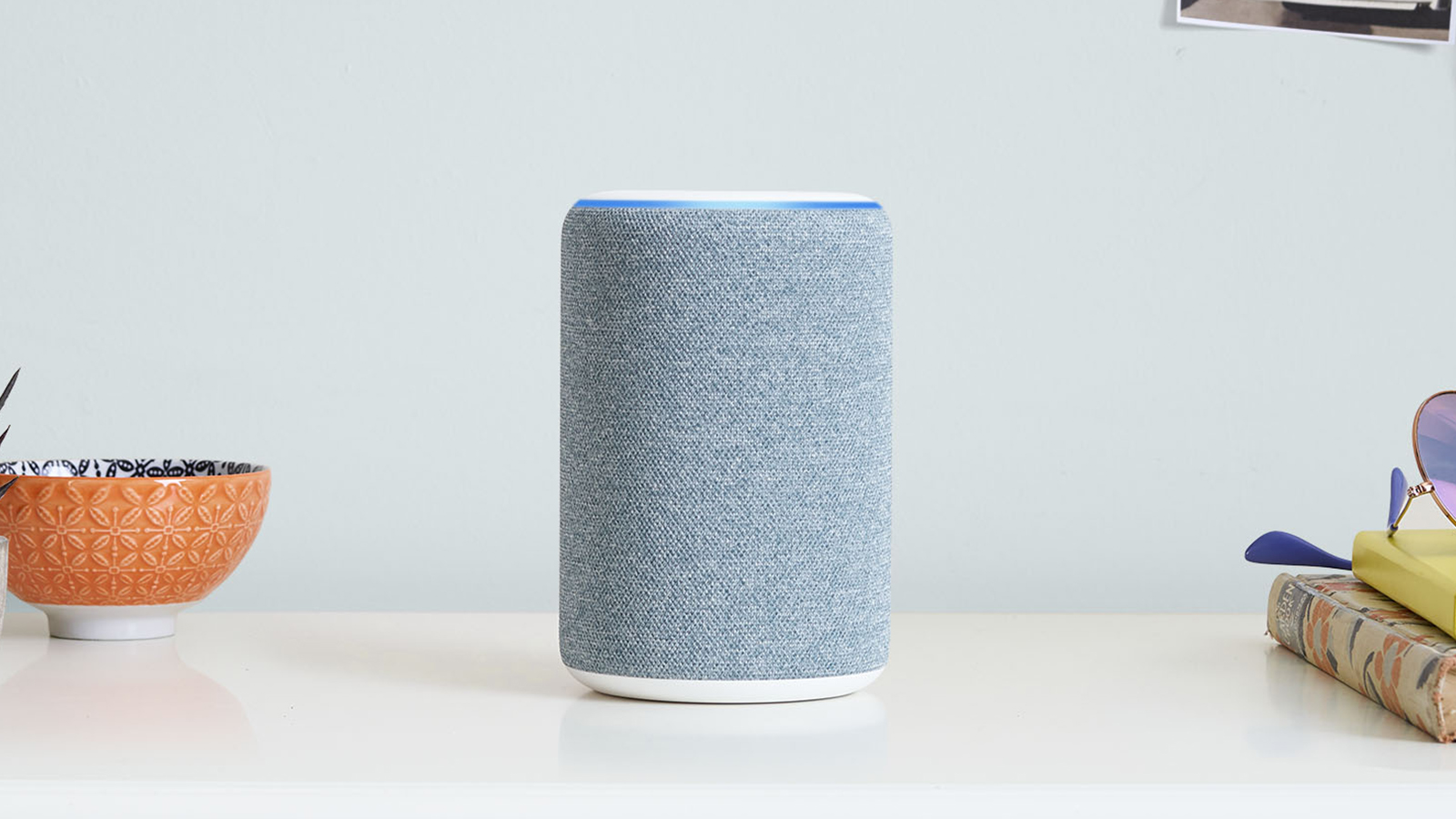
The Amazon Echo continues to get more aesthetically appealing with each version – we're now up to the 3rd generation of the main Echo speaker – whereas the main Google Home (launched in 2016) is now starting to look a little dated. Google does better with its cute Nest Mini speakers, from a design standpoint.
It's difficult to generalise across both ranges though. The Nest Hubs that Google puts out for example, with screens, look better to our eyes than the Amazon Echo Show devices (and they're also available in a more appealing range of colours). At the premium end, however, the Amazon Echo Studio looks better than the Google Home Max.
Factoring in every speaker in both ranges, we'll have to declare it a draw: both Amazon and Google have some very nice-looking devices, and both have some hardware that's more clunky looking. If we had to pick the most well-designed speaker of the lot, then the main Echo remains the one to beat, with its smooth lines and fabric outer layer.
Amazon Echo vs Google Home: features
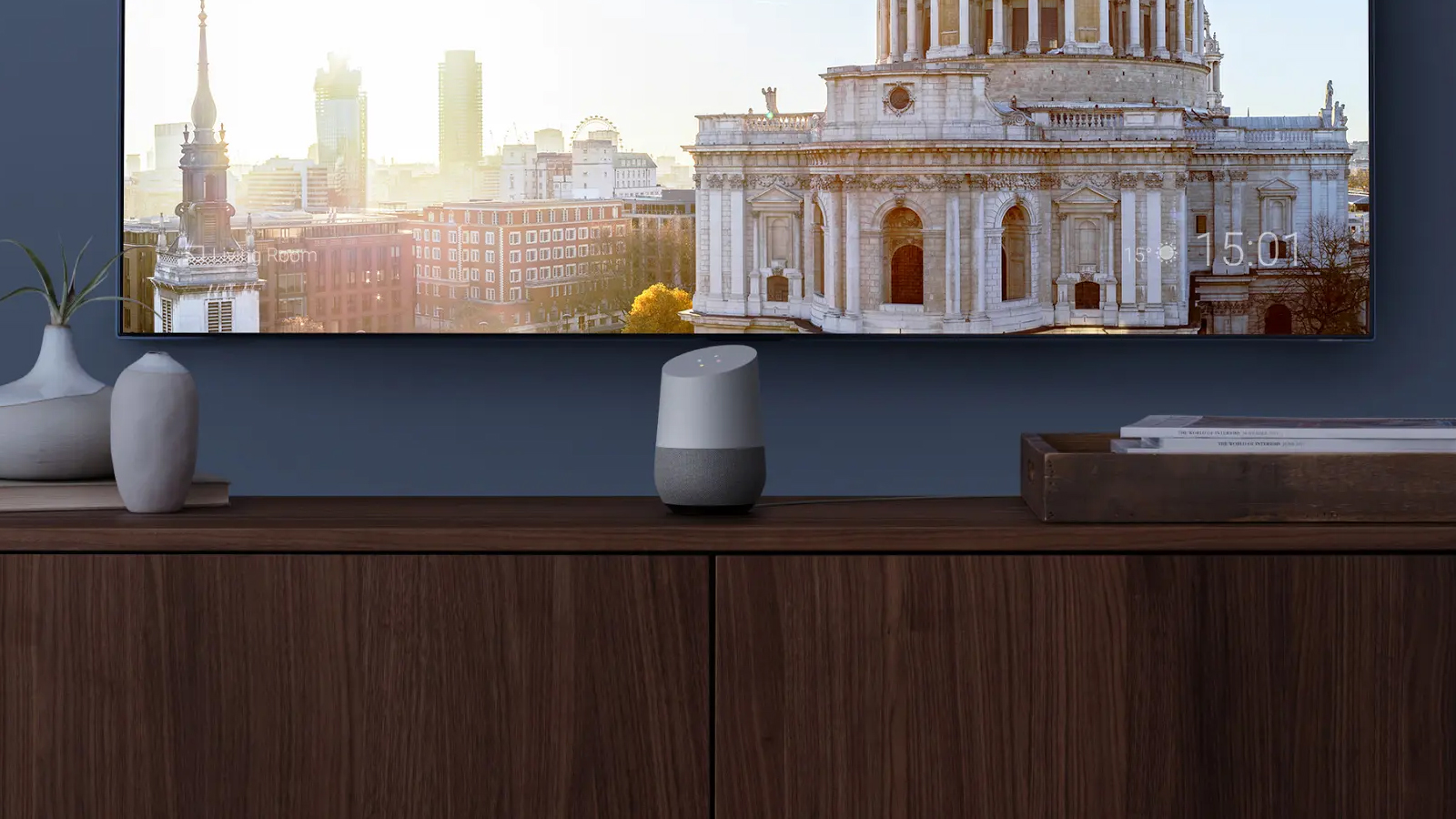
Both speaker ranges come with competent companion apps for iOS and Android, both have intelligent digital assistants on board (of which more in a moment), and both can tie into larger ecosystems (working with Chromecasts and Amazon Fire TVs, respectively, as well as other smart home products). Here we'd say it's about honours even – a lot of the features are the same across the board, just with different platforms.
That extends to routines as well, the ability to combine several actions that are carried out with one voice command (so turning the lights off and playing a bedtime playlist with one command, for example) – both Google and Amazon speakers can do this now. Another feature that's the same across both ranges is being able to recognise individual members of the family, which is handy for personalising responses about your day's calendar appointments and so on.
Get all the latest news, reviews, deals and buying guides on gorgeous tech, home and active products from the T3 experts
With several devices in each range to pick from, you've got a choice of how impressive the audio output is going to be as well, and buying a more expensive speaker will get you better-quality sound (as you would expect). What differences there are in features really depend on the on-board software, which brings us neatly to...
Amazon Echo vs Google Home: digital assistant
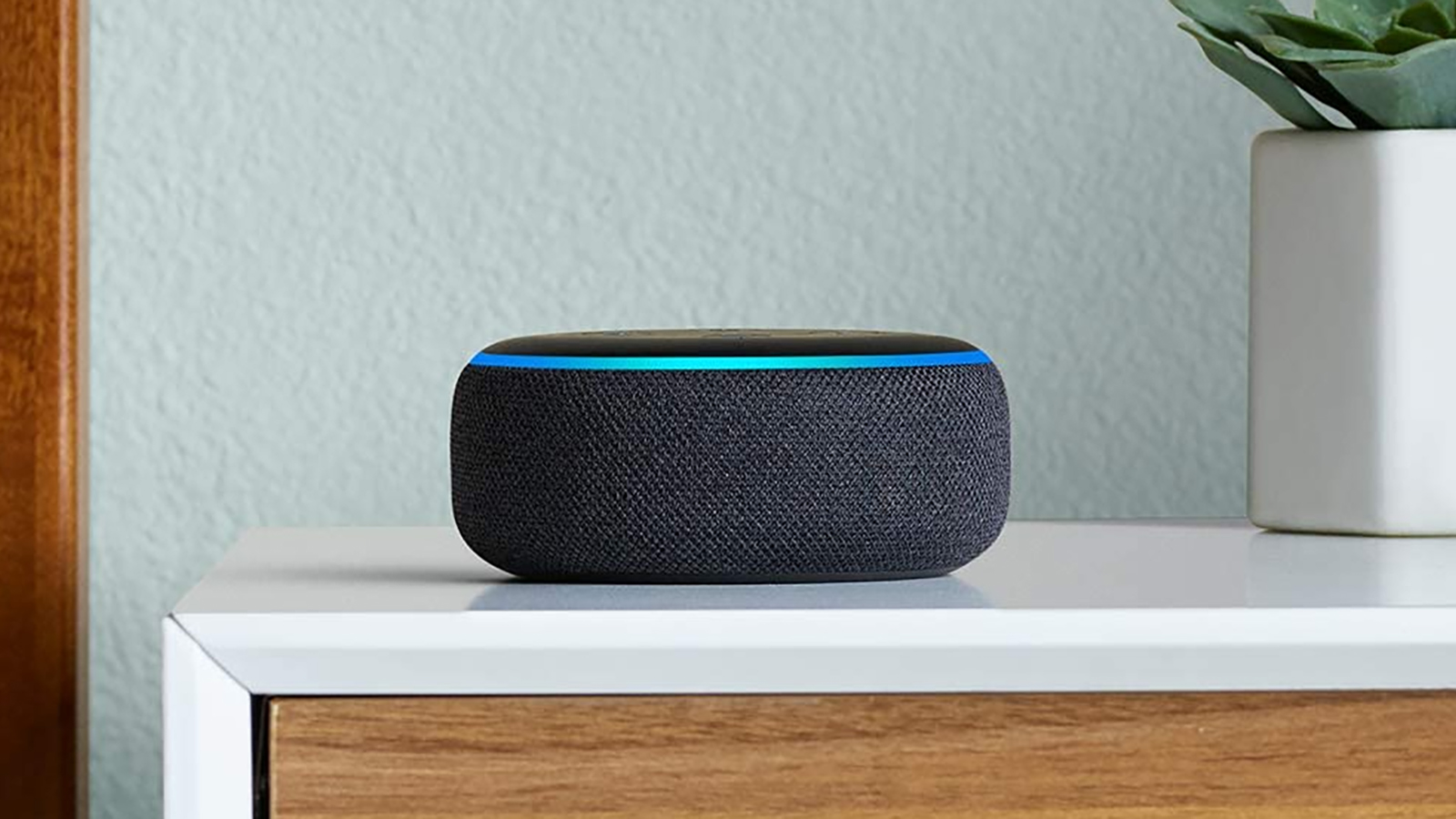
Amazon Alexa has tens of thousands of digital skills at its disposal, making it the most comprehensive smart speaker platform out there – if you need something doing, chances are Alexa will be able to do it. It's also appearing in more and more devices, and not all made by Amazon either.
Google Assistant, on the other hand, doesn't have the same kind of breadth as Amazon Alexa, but does have the power of Google's AI research underpinning it. It's available on Android and iOS smartphones, Android TV and Chromebooks as well as the Google Home speaker, and of course ties in well with most other Google apps and services.
These two digital assistants are now so capable and far-reaching – from music playback to smart home control – that it's difficult to pick out meaningful differences that make one better than the other. Which one is best really depends on what other devices you have in your home, and the ecosystems you're already invested in.
However, we have done a move extensive Amazon Alexa vs Google Assistant comparison, which picks out the differences you might want to know about. But for the vast majority of people, it won't make much difference which one you go for.
Amazon Echo vs Google Home: the mini options
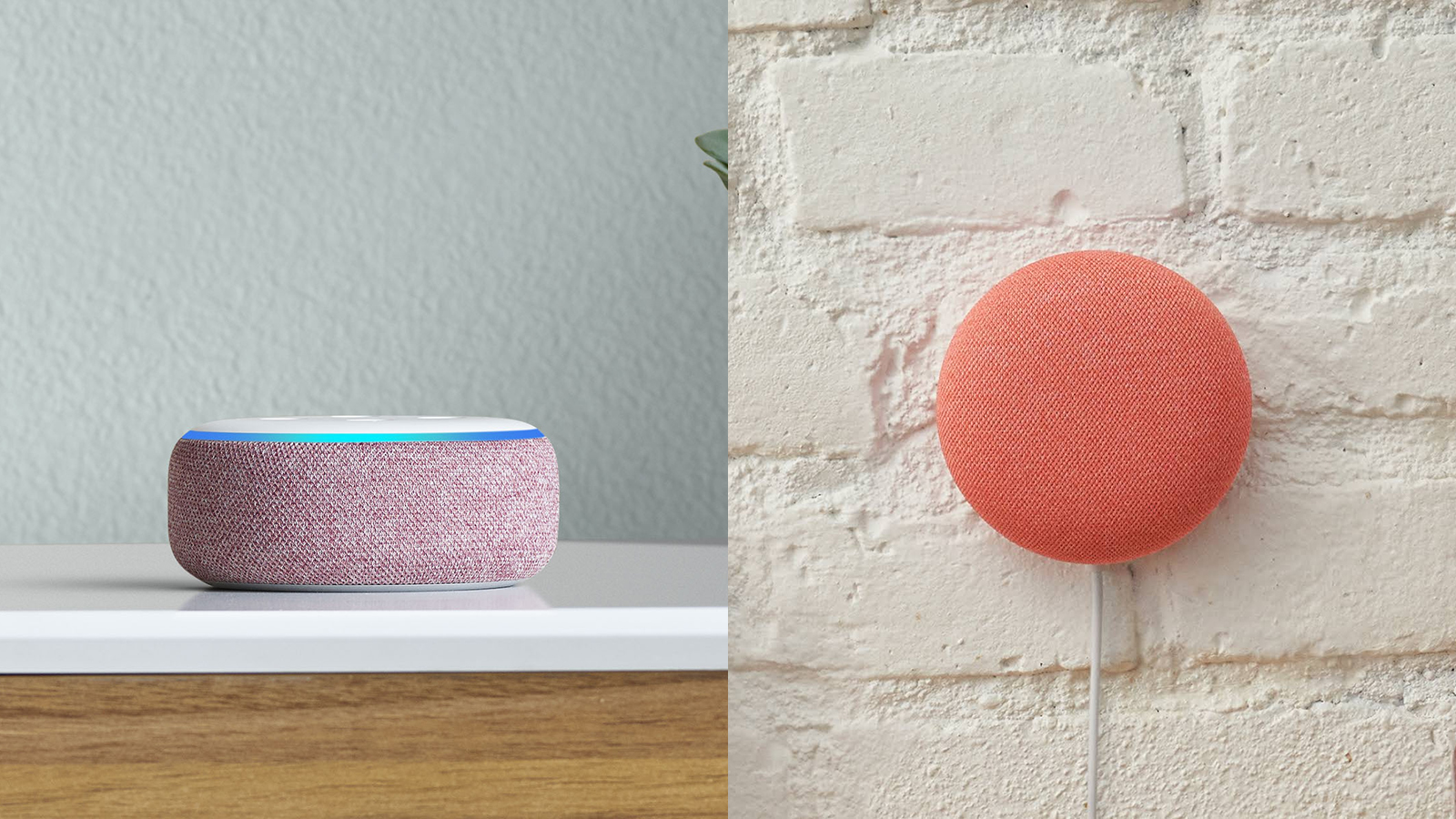
Let's not forget the mini options here – the Amazon Echo Dot and the Google Nest Mini. Packing in the same AI skills, if not the same audio output quality, these dinky speakers represent excellent value for money and can be installed just about everywhere. Unless you need high fidelity music playback, these speakers represent the best way of getting an Echo or Google speaker into your home.
So which is better? Again, it's a close call – the fact that you can plug an Echo Dot into another speaker via a 3.5mm audio cable might just give it the edge in terms of versatility, though in our opinion Google's dinky speaker (available in chalk, sky, coral and charcoal colours) has a slightly more appealing design than its Amazon rival (available in charcoal, grey, plum and sandstone).
There's still the same Amazon Alexa vs Google Assistant face-off here, and again both digital assistants are very competent indeed. Both Google and Amazon have been very good at adding new features over time as well. Note that the Google Nest Mini was previously called the Google Home Mini, and the same Home-to-Nest rebranding might well come to the bigger speakers eventually as well.
Amazon Echo vs Google Home: the premium options
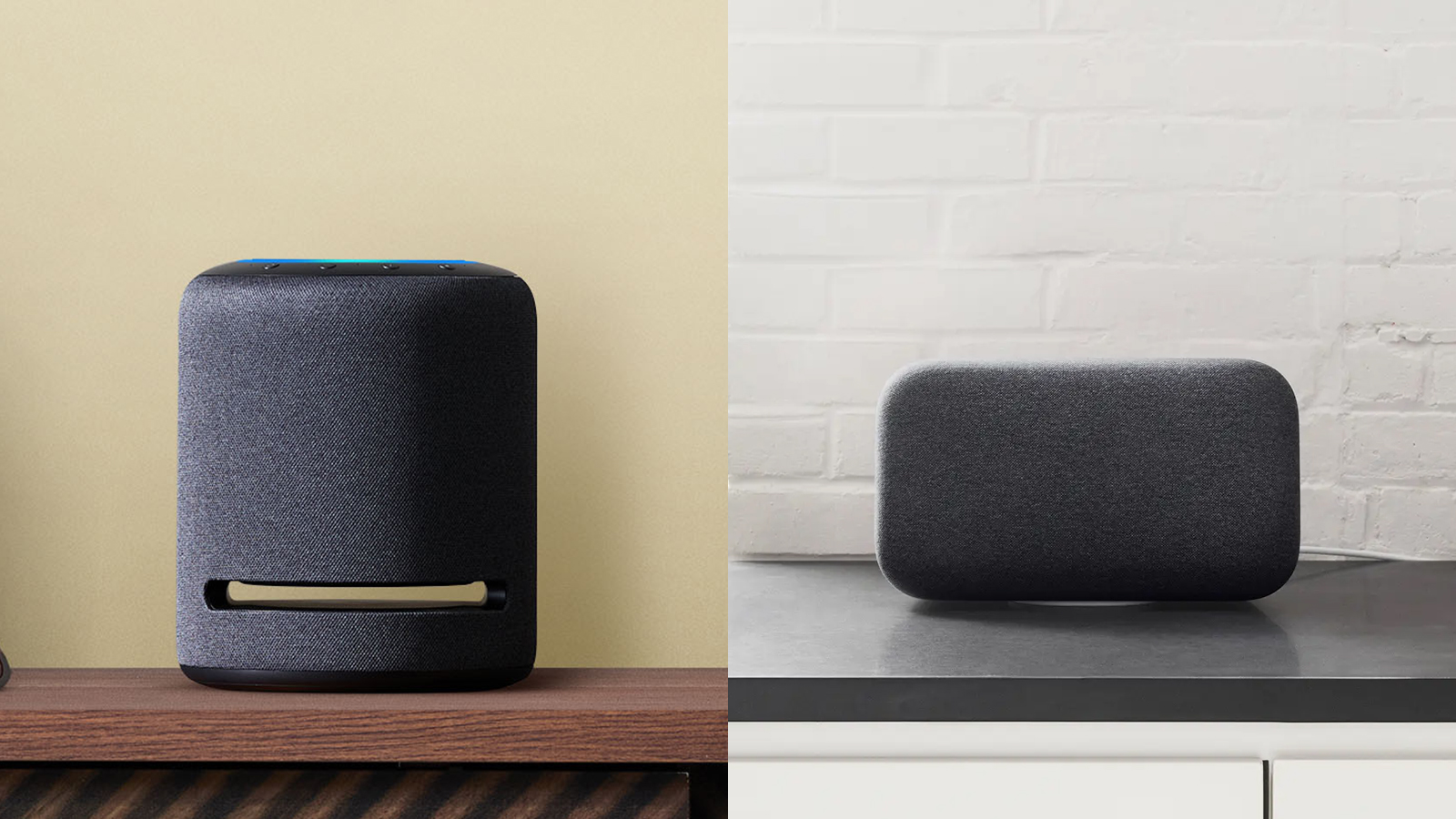
If you want the best-sounding speakers in these ranges, you want either the Google Home Max or the Amazon Echo Studio. Both are designed to add real oomph to your music compared to regular smart speakers, thanks to multi-driver speaker setups that more closely match a real hi-fi system, with some extra audio processing smarts to make them sound as good as possible. Of course, all this means they'll cost you a bit extra, and a bigger than other smart speakers.
It's hard to separate them in terms of the sound they can pump out, though we think the Echo Studio is the nicer looking of the two, and it's significantly less expensive too.
The Amazon Echo Studio comes fitted with five separate speakers, and can assess the acoustics of your room and then tweak its sound output accordingly. There's support for Dolby Atmos here, and a design that we think is really good, as we've said – with a subtle blue light around the top of the unit. There's only one grey colour choice, but you get 3.5mm audio and mini optical ports, if you need them.
As for the Google Home Max, it's available in either chalk or charcoal. Inside you've got two 4.5-inch woofers and two 0.7-inch custom tweeters, and like the Echo Studio, the sound output can be adapted to suit the acoustics of your room (Google says it uses some sophisticated machine learning AI to do this). It has a 3.5mm audio input port too, for wiring up other devices.
Amazon Echo vs Google Home: the display options
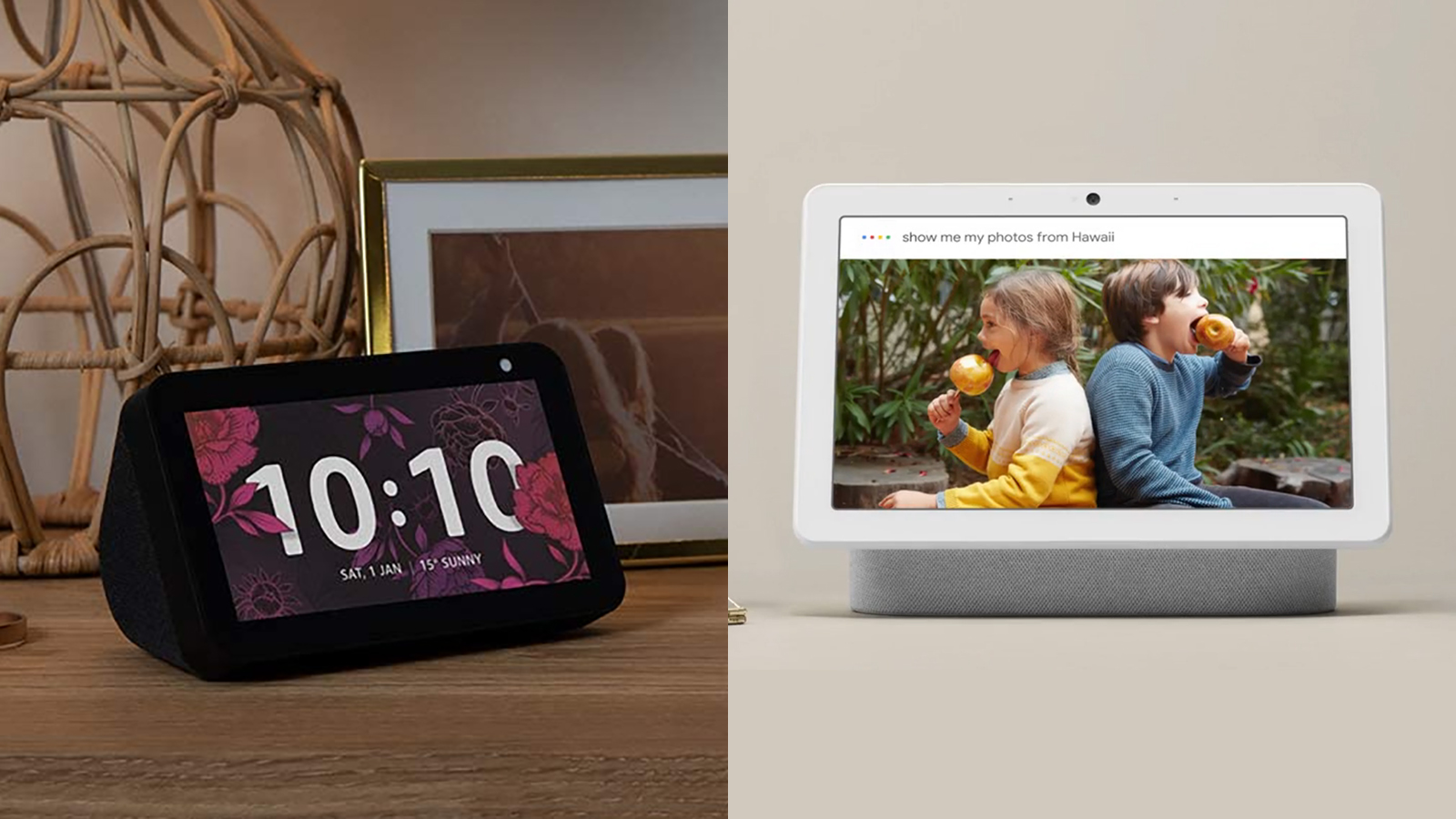
You can get Amazon and Google speakers with displays attached now: on the Amazon side there's the Echo Show 10, the Echo Show 8 and the Echo Show 5 (denoting the touchscreen sizes, in inches), and with Google you've got the Nest Hub (with a 7-inch touchscreen) and the Nest Hub Max (with a 10-inch touchscreen).
Plenty of choice when it comes to the screen size then, and of course Amazon Alexa and Google Assistant are on board. The graphics and illustrations Alexa uses look a little more polished than the Google Assistant equivalents, though there's not much in it. In terms of general aesthetic design, however, we prefer the Google Nest Hubs. All these smart displays are available in either a dark or a light grey fabric.
Which of these devices is best for you really depends what you want to do with them, and which services you're already signed up to. The Echo Show makes viewing feeds from a Ring security camera or tuning into Amazon Prime Video a breeze, for example; if you want to see what's on YouTube or load up a video feed from a Nest camera on the other hand, then a Google device is a better bet.
Amazon Echo vs Google Home: verdict
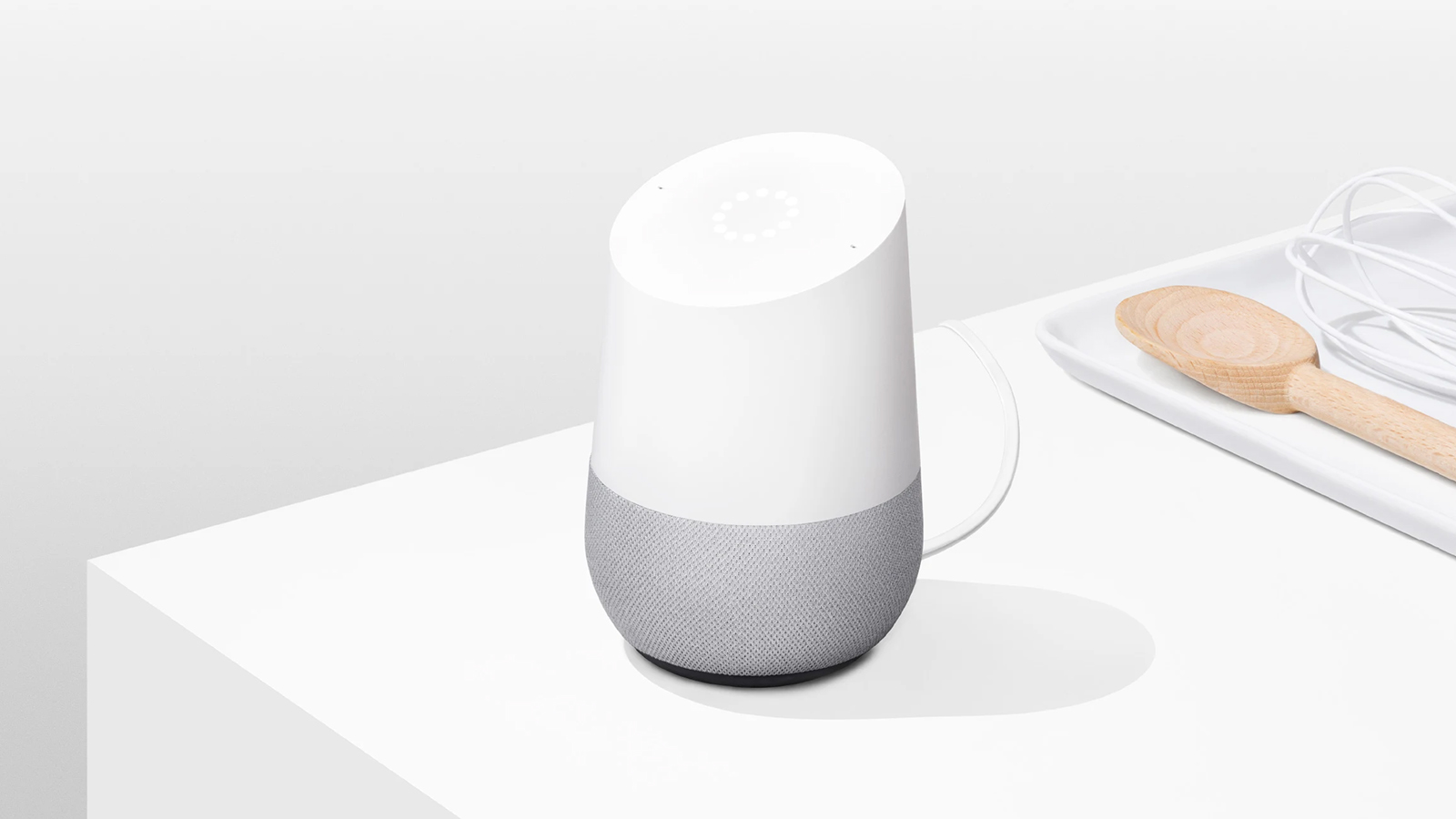
You're not going to be disappointed with devices from either of these smart speaker ranges. Google might have copied Amazon's idea with the Google Home, but it's copied it well, and the underlying smart assistants continue to improve and are hard to separate. The choice from both tech giants has been expanded to include options with displays and with premium audio output.
In fact there are so many different options out there now that it's tricky to come to a definitive verdict when it comes to Amazon Echo vs Google Home. As we've already mentioned, a lot is going to depend on the devices you already have installed (like a Chromecast, for example), and the software and services you want to use with your speakers (like Amazon Prime Video).
It's worth thinking about exactly what you want your speaker to do – do you need high-quality audio from it, or will decent-quality audio do? Do you need a screen for watching videos? Which smart home devices are you wanting to control? When you've got answers to those questions, you can see whether Amazon or Google are going to be able to better serve your needs.

Dave has over 20 years' experience in the tech journalism industry, covering hardware and software across mobile, computing, smart home, home entertainment, wearables, gaming and the web – you can find his writing online, in print, and even in the occasional scientific paper, across major tech titles like T3, TechRadar, Gizmodo and Wired. Outside of work, he enjoys long walks in the countryside, skiing down mountains, watching football matches (as long as his team is winning) and keeping up with the latest movies.